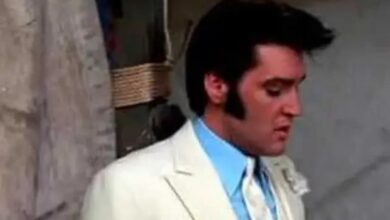Stephen Colbert was deeply moved, shedding tears as Dolly Parton sang “Bury Me Beneath The Willow.”
Dolly Parton’s impromptu performance of “Bury Me Beneath The Willow” on “The Late Show with Stephen Colbert” was a moment of raw emotional power, illustrating the depth of Parton’s musical talent and her ability to convey profound emotions through song. This traditional folk ballad, with its themes of heartbreak and loss, was rendered with such sincerity and depth by Parton that it visibly moved Colbert, a seasoned television host known for his composure.
The moment was unexpected. Parton, who was on the show to promote one of her many projects, began to discuss her family and the music they would sing together. She then drifted into singing “Bury Me Beneath The Willow,” her voice carrying the weight of the song’s melancholy narrative. Colbert, caught off guard by the sudden shift in mood, was visibly moved, wiping tears from his eyes as Parton sang. It was a testament to the universality of music and its power to transcend the ordinary and touch the deepest parts of our humanity.
Parton’s ability to bring such raw emotion to a brief, impromptu performance speaks volumes about her skill as a vocalist and her sensitivity as an interpreter of song. With a career spanning over five decades, Parton has become an icon in country music and beyond, known for her distinctive voice, prolific songwriting, and vibrant personality. Yet, it is moments like these that remind us of the depth and soul behind the glittering public persona.
Born in 1946 in a one-room cabin in the Smoky Mountains of Tennessee, Dolly Parton’s rise to fame is a narrative of talent, perseverance, and an unyielding passion for music. From her early days performing as a child to her breakthrough in the late 1960s as a songwriter and performer, Parton’s journey is marked by a series of iconic songs and albums that have become part of the fabric of American music.
Parton’s discography is a reflection of her versatility as an artist, encompassing country, pop, bluegrass, and gospel. Songs like “Jolene,” “9 to 5,” and “I Will Always Love You” have become anthems across generations, showcasing her gift for storytelling and her ability to craft melodies that resonate with listeners worldwide.
Beyond her musical achievements, Parton is also known for her philanthropic work, particularly in the area of literacy, through her Imagination Library, which gifts books to children to foster a love of reading. Her contributions to cultural and humanitarian causes have further cemented her status as a beloved figure.
The moment on Colbert’s show, while brief, was a poignant reminder of the depth of Parton’s artistry. It wasn’t just the song itself but the context in which it was delivered—a spontaneous act of sharing, rooted in the traditions of family and music, that reached across the screen to touch an audience far beyond the studio.
This episode is a testament to the enduring power of music to convey complex human emotions and to connect us in moments of shared vulnerability. Dolly Parton’s impromptu performance on “The Late Show with Stephen Colbert” stands as a powerful example of how music can bridge divides, touch hearts, and bring even the most unlikely of individuals to tears.





